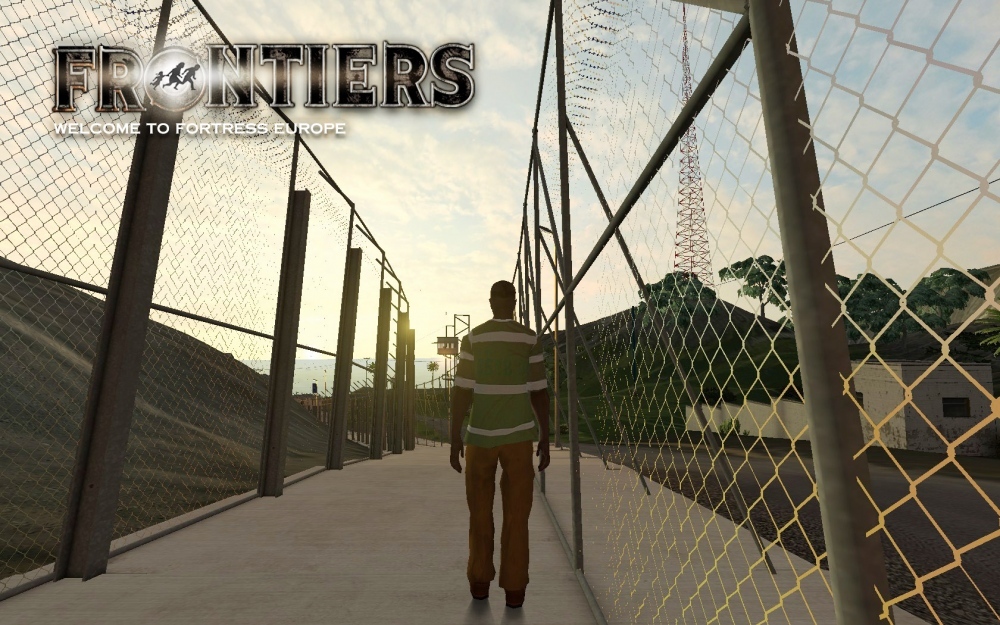Since 2007, GEElab doctoral reseacher Jens M. Stober has been working on the design and development of Austrian artist group Gold Extra’s refugee game, “Frontiers” (2012). He has since gone on to develop his own games which are influenced by controversial topics. In 2013, his latest game will explore the Australian refugee crisis, as part of his doctoral reaearch into "Game-Hacking."
Challenging perceptions of the refugee situation in Europe, “Frontiers” (2012) was the original work of Austrian artist group Gold Extra. Developed as an immersive game that represents the EU borders, players work as individuals or groups to try and find paths escaping to asylum. After intensive research by Gold Extra that had begun in 2006, the final edition was released in February 2012 and has since been downloaded over 55,000 times, has sparked debate and has challenged the understanding of serious games as entertainment.
As an original member of the “Frontiers” design team, Jens created “1378(km)” in 2010 as his pre-diploma. “1378(km)” is an adaptation of “Frontiers” and a first person shooter game modification that allows players to act either as the border guards or the refugees in the territory between East and West Germany (1949-1990). A historical reference aimed at educating younger Germans about the history or their region, the game’s rules will punish a player when shooting any refugee - the message is crystal clear: if you kill in “1378(km)”, you will lose the game.
Moving away from first person shooter games as means to “game-hack” a controversial topic, Jens’ next projects tackles the topic of the Australian refugee crisis by which refugees are detained in offshore detention centres. The App will explore different techniques to engage audiences on the topic and is scheduled for release in late 2013 via the Games & Experimental Entertainment Lab (GEElab) at RMIT University.
Having pioneered the Australian refugee-asylum discussion, “Escape from Woomera” is a serious game developed in Australia in 2003, by a group of professional game developers, digital media artists and an investigative journalist. The game won $25,000 in Federal government funding and has been widely discussed across a range of cultural platforms.
Other influential games in this area include the United Nations High Commission on Refugees “Against All Odds” (2005) and mtvU's “Darfur is Dying” (2006). For more information on serious games and games for change, please contact
info@geelab.rmit.edu.au